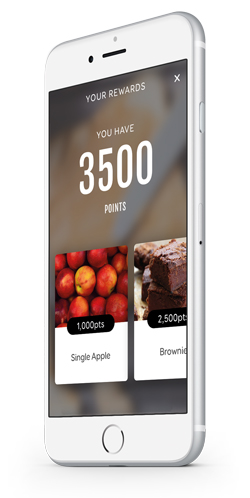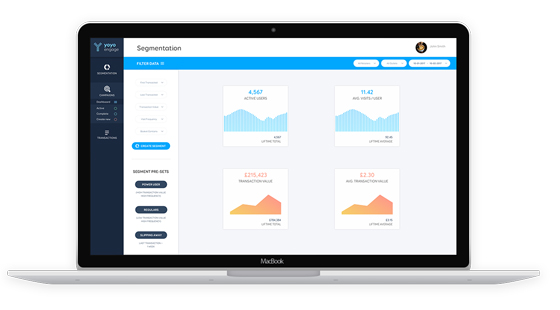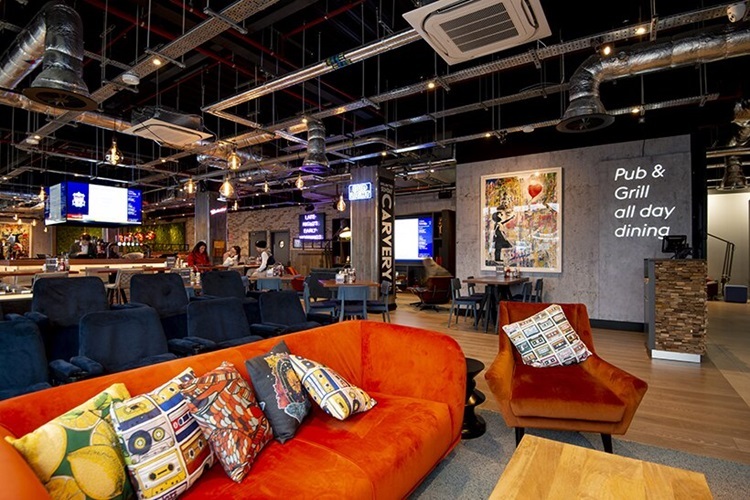Why hospitality businesses are getting their apps together
As technology evolves, the hospitality industry is moving away from individual apps towards integrated solutions covering the entire customer journey. Elly Earls reports
Hospitality businesses can't ignore the fact that mobiles are becoming an increasingly important part of their customers' lives. But nor they can they ignore the pace at which mobile technology is evolving.
Just a few years ago, the only realistic option for restaurateurs wanting to capitalise on the mobile revolution was to team up with a developer to create an app from scratch or to cede control to a third party, but this is no longer the case.
But back to 2017. Whatâs becoming much more common than employing a developer to create an app from the ground up is for operators to team up with companies that offer white-label solutions built on a generic app.
The idea is that this brings the best of both worlds â" businesses get an app that has the look and feel of their brand, building trust and customer loyalty, but that can also accept payments or â¨process rewards using an established system, as well as being able to build rich data analytics around customers.
Itâs crucial, according to Tony Franklin, sales director at EPoS provider Orbis Tech, to make sure that branded app providers are able to integrate their solutions with operatorsâ back-of-house systems. âIf a mobile app is integrated with an EPoS system, the customer transaction is captured at the point of purchase, identifying key information that can then be delivered to the app developer and displayed to the operator to help upsell products and invite customers to return,â he says.
âFurthermore, the system can then deliver a notification to the user through â¨their app at a later point, using data from their previous â¨purchases to create targeted offers that will increase the chance of that â¨customer returning.â
One operator that has successfully â¨followed the white-label route is salad bar chain Vital Ingredient. It teamed up with mobile payments and loyalty app provider Pepper to create an app that includes a virtual wallet, click-and-collect and delivery functions, a nutritional calculator and a digitised loyalty programme, that has replaced the brandâs â¨previous swipe card-based system.
Feedback has been hugely positive, with 8,000 people downloading the app in six months, and click-and-collect sales tripling in the two months since the functionality was introduced. âPepper had a lot of background knowledge on what other people had done and what had worked, so that made the whole â¨process very smooth,â says Paolo Peretti, â¨managing director of Vital Ingredient.
Thatâs not to say that third-party apps â" â¨the likes of OpenTable and UberEATS â" are dead. To the contrary, there are more around than ever, helping customers to do everything from discovering restaurants to leaving feedback, giving operators reach that they couldnât achieve on their own.
One example is Yoyo Wallet, a platform that enables caterers to turn anonymous customers into individuals with purchasing preferences and habits, and that instantly rewards them at the point of payment. Co-founder and chief product officer Michael Rolph says: âFrom a customer experience point of view, when visiting a canteen, they simply pull out their phone and open the Yoyo app, which will immediately give them a view of their existing relationship with that caterer, whether theyâve earned loyalty points, stamps or vouchers.
âBased on the fact that Yoyo identifies the customer and obtains individual basket data â¨at the point of payment, caterers then use Yoyoâs retail insight dashboard and campaign manager, Yoyo Engage, which provides real-time insight to the caterer on their customersâ buying behaviour and preferences, so that â¨they can understand and segment customers based on their habits.â
Increasingly, however, the lines between third-party, first-party and branded apps are blurring. Yoyo Wallet, for example, is also creating retailer-branded apps for strategic partners such as Caffè Nero, while companies such as Pepper are teaming up with other app providers, such as mobile and online ordering specialist Preoday, to add extra functionality to their solutions. The click-and-collect part of Vital Ingredientâs app was provided by the latter.
Similarly, Zonal Marketing Technologies, which has a dedicated business unit looking at emerging technologies, such as developing apps for hospitality brands, worked with Flypay to develop the Privilege app for the Browns restaurant chain, which combines loyalty â¨and payment with the addition of pay-at-table functionality.
The Levi Roots Caribbean Smokehouse app, too, integrates solutions from several technology providers, including Flypayâs pay-at-table solution, the DineTime queue management technology by Call Systems Technology and QSR Automationsâ back of house technology.
The future will be even more integrated, thanks to a trend within the industry towards working together rather than competing. As Tom Weaver, chief executive of Flypay, which last year launched Flyt, a technology platform that seamlessly links technologies from different players, and has already partnered with operators including Nandoâs and Mitchells & Butlers, explains: âThe leading restaurant and pub operators want to get ahead of the game, but in a way that is unique to them. They want to leverage all the work that has gone in before to build-out these solutions, while also finding their own competitive advantage.
âUltimately, what they really want is for the technologies they already use to form different parts of the customer journey, to work together to improve consumer and staff experiences. The good news is that the best technology companies are working together in ground-breaking new ways to make this happen â" â¨collaborating, not competing.â
Your rights to data through third-party apps
New data protection laws set â¨to come into force in May 2018 will significantly restrict the rights â¨that hospitality operators have â¨to any customer data when working with third-party apps.
Preoday chief executive Andrew White says: âUnder the General Data Protection Regulation (GDPR), aggregators will be the âdata controllerâ, and while hospitality operators may be granted limited rights as âdata processorsâ, they will be restricted to use of the data based on the written instructions and need for use of the data as â¨a processor for the aggregator.
âThe only way around this would be for hospitality operators to move off the aggregator platform and create a direct customer relationship by launching an owned ordering app or online portal.â
Yet, with greater access to customer data does come greater responsibility, according to Elliot Fry, a solicitor at law firm Cripps.
âAny information relating to â¨an individual â" even if it alone doesnât identify them â" may be subject to data protection law,â â¨he says. âOperators harvesting this information will need to â¨justify their collection and use â¨of it, potentially through obtaining consent, or showing it was necessary for a legitimate interest.â
A useful principle to guide â¨high-level decisions around â¨data is asking what a user would reasonably expect you to do with that information, Fry advises.
âA public user might expect it to be used for service improvement, but uses for advertising purposes or disclosure to third parties are potentially more problematic,â he says. He adds that the Information Commissionerâs Office (ico.org.uk) can âname and shameâ and fine businesses that breach data protection law (which includes collecting irrelevant data), making it well worth putting the time in to avoid unintentionally getting â¨on the wrong side of the law.
âThe fines are capped at £500,000, but next year [under the GDPR] they rise to â¬20m [£18m] or 4% of worldwide turnover,â he says.
Fortunately, extensive guidance is available at ico.org.uk on the current law and the forthcoming changes. âOperators should critically examine their collection and use of data, ensure they have appropriate security arrangements, consider the contracts they have with suppliers or partners that access their data, and use appropriate privacy notices â¨and policies,â suggests Fry.
FOUR OPERATOR-LED HOSPITALITY APPS
The Entertainer
What?
The Entertainer is a global â¨lifestyle app and provider of â¨offers from well-known dining, leisure, entertainment, beauty â¨and hotel brands. It launched â¨in the UK in June 2017.
Why?
The Entertainer was established as a print publication in 2001 in the UAE, and was conceived to drive footfall for operators that might not have been able to reach such a large audience. The app was released in 2013 and its reach is now even wider. In 2016, more than 2.9 million mobile offers were redeemed in the UAE alone.
Benefits
Key benefits for operators include increased revenue and gaining insight into customers. Users can track results via the merchant portal and amplify their reach as needed with tactical offers, additional exposure and direct communication.
How much?
The cost of being an Entertainer partner is based solely on performance. The PPR fee is 5% â¨of the âestimated savingâ of the offer. So, if the average cost of a main course on an operatorâs menu is £10, the PPR fee for â¨each offer redeemed is £0.50.
Ordoo
What?
The Ordoo app allows customers to order ahead at cafés, coffee shops, lunch spots and bars, beating the queue and earning loyalty rewards.
Why?
Ordoo was established with the aim of helping people save time when collecting food and drink.
Benefits
Ordoo saves time for customers and venues, and the appâs customer engagement platform enables venues to understand and engage with their customers so they come back more frequently and bring their friends.
How much?
There is a £99 set-up fee to join Ordoo and then a monthly subscription, from £39 for the customer engagement platform.
Yumpingo
What?
A food intelligence platform that delivers thousands of reviews every month. Guests complete a one-minute food and guest experience review at the end of their meal â¨on Yumpingo-branded devices.
Why?
The Yumpingo founders believe that current methods of capturing feedback are cumbersome and lack the scale to be meaningful.
Benefits
Dish reviews are designed to lead to authentic and actionable insights, so operators can optimise margins. Restaurants can also showcase their best dishes live, building their online reputation.
How much?
From £99 a month per venue.
OpenTable
What?
OpenTable has a consumer-facing app, which makes it easy for diners across the world to discover restaurants, and a restaurant-facing app, that enables restaurant owners to keep an eye on their business while on the go.
Why?
OpenTableâs app for diners was created to help restaurants reach a wider audience. Its recently released restaurant-facing app, GuestCenter, was developed to help its more than 42,000 restaurant partners around the world run and grow their businesses more efficiently.
Benefits
The biggest benefit of OpenTable is its reach. Globally, the company seats more than 22 million diners each month, and in the first quarter of this year, 53% of OpenTableâs global seated diners originated on a mobile device.
How much?
GuestCenter starts from a â¨Â£149 monthly subscription fee. Itâs £2 per cover through the OpenTable network and 25p through the OpenTable widgetâ¨on the restaurantâs website.


















